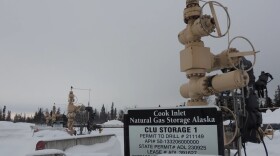
Madilyn Rose
Previous Program ProducerMadilyn worked at Alaska Public Media from 2022 to 2026. She was a Program Producer.
-
State lawmakers expect a messy session this year as legislators grapple with the state's fiscal future.
-
Lawmakers fail to override the Governor's veto of a bill that would have generated revenue for the state.
-
Governor Dunleavy begins to reveal details of his ideas for Alaska's long-term fiscal plan.
-
The state legislature gavels in amid growing concerns about Alaska's financial future.
-
State lawmakers expect a messy session this year as legislators grapple with the state's fiscal future.
-
Officials are discussing how to use an influx of federal rural healthcare funds.
-
Behind Anchorage's 45 outdoor deaths last year are commonalities, as well as personal stories.
-
President Trump is angry with Senator Lisa Murkowski, this time over efforts to limit his use of the military in Venezuela.
-
Evacuations in Juneau as more intense weather threatens swaths of the city with avalanches.
-
Evacuations in Juneau as more intense weather threatens swaths of the city with avalanches.










